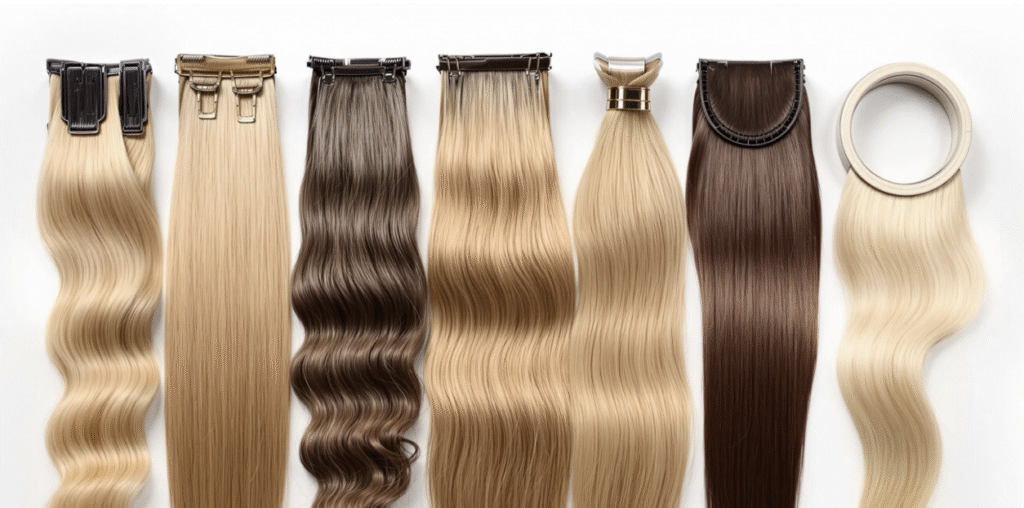The beauty industry is changing fast, and consumers are no longer satisfied with just looking good they want to feel good about the choices they make. Hair extensions, once seen as a purely cosmetic accessory, are now being reimagined in a world where sustainability and ethics are at the forefront. In Norway, a country known for its strong environmental values and emphasis on natural beauty, this shift is particularly relevant.
So, what does the future of hair extensions look like? It’s all about eco-friendly solutions, ethical sourcing, and long-lasting quality. Let’s explore how these trends are shaping the next generation of beauty products, and why brands like Royal Hair are leading the way.
The Environmental Impact of Beauty Choices
For decades, many hair extensions were produced with little thought about their origin or environmental footprint. Synthetic options, often made from plastic fibers, contributed to pollution and looked less natural. Even some human hair extensions were sourced unethically, with little transparency.
But consumers are now asking tougher questions: Where does my hair come from? How long will it last? Is this purchase sustainable?
Norwegian women, in particular, are increasingly mindful of these issues. In a country where eco-consciousness is part of daily life, sustainable beauty products aren’t just a trend they’re an expectation.
Why Sustainability Matters in Extensions
Extensions that don’t last long contribute to waste. Cheap products tangle, shed, and need frequent replacement, leading to more consumption. By contrast, sustainable hair extensions are made to be durable, reusable, and crafted from responsibly sourced human hair.
This means fewer replacements, less waste, and a lower environmental impact over time. For consumers, it also translates into better value, since high-quality extensions can be styled, washed, and worn repeatedly without losing their beauty.
Ethical Sourcing: Beauty Without Compromise
Another major concern is where the hair actually comes from. Ethical sourcing ensures that donors are fairly compensated and that the hair is collected responsibly. This prevents exploitation while giving consumers peace of mind that their beauty purchase is aligned with their values.
Brands like Royal Hair have made transparency a cornerstone of their business. By focusing on responsible sourcing, they guarantee that customers not only look good but also feel good about the choices they’re making.
A Norwegian Perspective
“Bærekraftige hårforlengelser er fremtiden. Norske kvinner ønsker skjønnhet uten å gå på kompromiss med etikk og miljø.”
(Translation: Sustainable hair extensions are the future. Norwegian women want beauty without compromising ethics and the environment.)
This reflects the mindset of many women in Norway today. It’s not just about following fashion trends but ensuring that those trends align with a broader cultural commitment to sustainability.
For example, Royal Hair has taken steps toward greener practices, offering long-lasting products and focusing on Royal Hair eco-friendly initiatives. These values resonate deeply in a market where consumers are highly conscious of their environmental impact.
Technology Meets Beauty
The future of hair extensions isn’t only about ethics it’s also about innovation. Advances in technology are making extensions safer, lighter, and more natural-looking than ever before. Bonding techniques, like keratin-based methods, reduce damage to natural hair while increasing durability.
At the same time, manufacturers are exploring biodegradable packaging, reduced chemical processing, and even recycling programs for extensions. This innovation ensures that beauty and responsibility go hand in hand.
Long-Lasting Value for Consumers
One of the strongest arguments for sustainable extensions is their longevity. While cheap synthetic options might last weeks, premium extensions can last months or even years with proper care. This not only reduces waste but also saves consumers money over time.
Think of it as “slow beauty” an approach where products are designed to endure, just like slow fashion. It’s about making thoughtful purchases that prioritize quality over quantity.
Aligning With Global Trends
Globally, we’re seeing a growing push toward sustainability in beauty. From eco-friendly packaging to cruelty-free cosmetics, the demand for ethical products is reshaping the industry. Hair extensions are no exception. Consumers now expect transparency, traceability, and eco-consciousness as part of the buying experience.
Norway, with its environmentally aware population, is at the forefront of this movement. By choosing sustainable extensions, Norwegian women are setting an example for how beauty can evolve responsibly.
The Role of Royal Hair in the Future
Royal Hair has built its reputation not just on quality, but also on values. By prioritizing sustainability, ethical sourcing, and durability, the brand ensures that its products are ready for the future of beauty. Whether it’s reducing waste through long-lasting extensions or committing to fair practices, Royal Hair is aligning itself with what modern consumers want most.
This is why the brand has become a favorite in Norway it doesn’t just sell beauty; it sells a philosophy that beauty should never come at the expense of people or the planet.
Final Thoughts
The future of hair extensions is clear: sustainability and ethics are no longer optional they are essential. Consumers want to know that their beauty choices are helping, not harming, the world around them. In Norway, where environmental values run deep, this shift is even more pronounced.
By choosing eco-friendly and ethically sourced products, women are proving that you don’t have to sacrifice style for responsibility. With brands like Royal Hair paving the way, the future of hair extensions looks not only glamorous but also sustainable. And that’s a transformation worth embracing.
